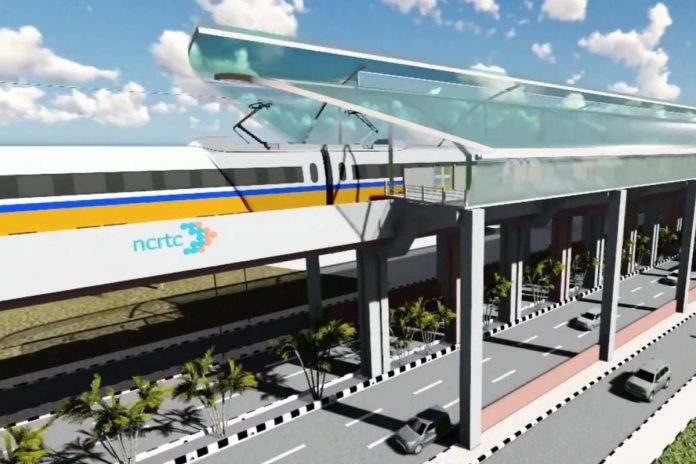Snapshot
82-km long Delhi – Ghaziabad – Meerut RRTS corridor’s stations will have EV charging points.
India’s first RRTS corridor between Delhi and Meerut will have 25 stations in total.
The National Capital Region Transport Corporation (NCRTC), the agency implementing the Regional Rapid Transit System (RRTS) project that links Delhi with Ghaziabad and Meerut, plans to provide electric vehicle charging points in stations.
The 82-km long and India’s first RRTS corridor between Delhi and Meerut will have 25 stations in total.
Also, NCRTC has invited partners for the purpose, and a detailed study will be conducted at the earliest.
“We are trying to make it convenient to the public and have planned to incorporate electric vehicle charging facilities at our stations. For this, we have invited experts and they will conduct a study about the options that can be made available at the stations. This will be helpful for electric vehicles as their number is expected to rise in the next couple of years when the RRTS project gets commissioned,” Puneet Vats, chief public relations officer (PRO), NCRTC, told Hindustan Times.
“With electric vehicle charging facilities, passengers will be benefitted and they can save time. The move will also encourage the use of electric vehicles and lead to a cleaner environment,” Vats added.
This year, NCRTC will begin trial runs on the priority section of the Delhi-Ghaziabad-Meerut RRTS corridor.
The 17 km priority section between Sahibabad to Duhai is targeted to be commissioned by 2023 and the full corridor by 2025. The civil work on the priority section, having five stations, is nearing completion. Track laying activities and overhead electrical equipment (OHE) installation are going on the elevated viaduct. All the five RRTS stations in the priority section – Sahibabad, Ghaziabad, Guldhar, Duhai and Duhai Depot – have started taking shape.
RRTS is the first-of-its-kind system in which trains, with a design speed of 180 kmph, will be available every 5-10 minutes and cover the distance between Delhi and Meerut in 55 minutes with 14 stoppages.
RRTS stations will have seamless integration with metro stations, railway stations, and bus depots. RRTS will bring people and places closer across the National Capital Region and further enable sustainable and balanced development of the region.
Delhi-Ghaziabad-Meerut RRTS corridor is estimated to reduce about 2,50,000 tonnes of carbon dioxide emissions per year. RRTS will prove to be the most energy-efficient futuristic transit system which will bring in a new era of seamlessly connected mega regions and set a new benchmark for similar projects in the future.
The work on the entire 82-km long Delhi-Ghaziabad-Meerut RRTS corridor is in full swing, which will have 25 stations in total, including two depots at Duhai and Modipuram and one stabling yard at Jangpura. Recently, the 22nd launching gantry was installed on the corridor, and more than 14,000 workers and more than 1,100 engineers are engaged in the construction work, day and night.
NCRTC has completed about 80 per cent of the foundation work of the elevated section. More than 1,400 piers on a 40 km stretch and 18 km of viaduct have been constructed so far, most of which are in the priority section.
The Delhi-Ghaziabad-Meerut corridor RRTS corridor is expected to have a daily ridership of around 8 lakh passengers.


